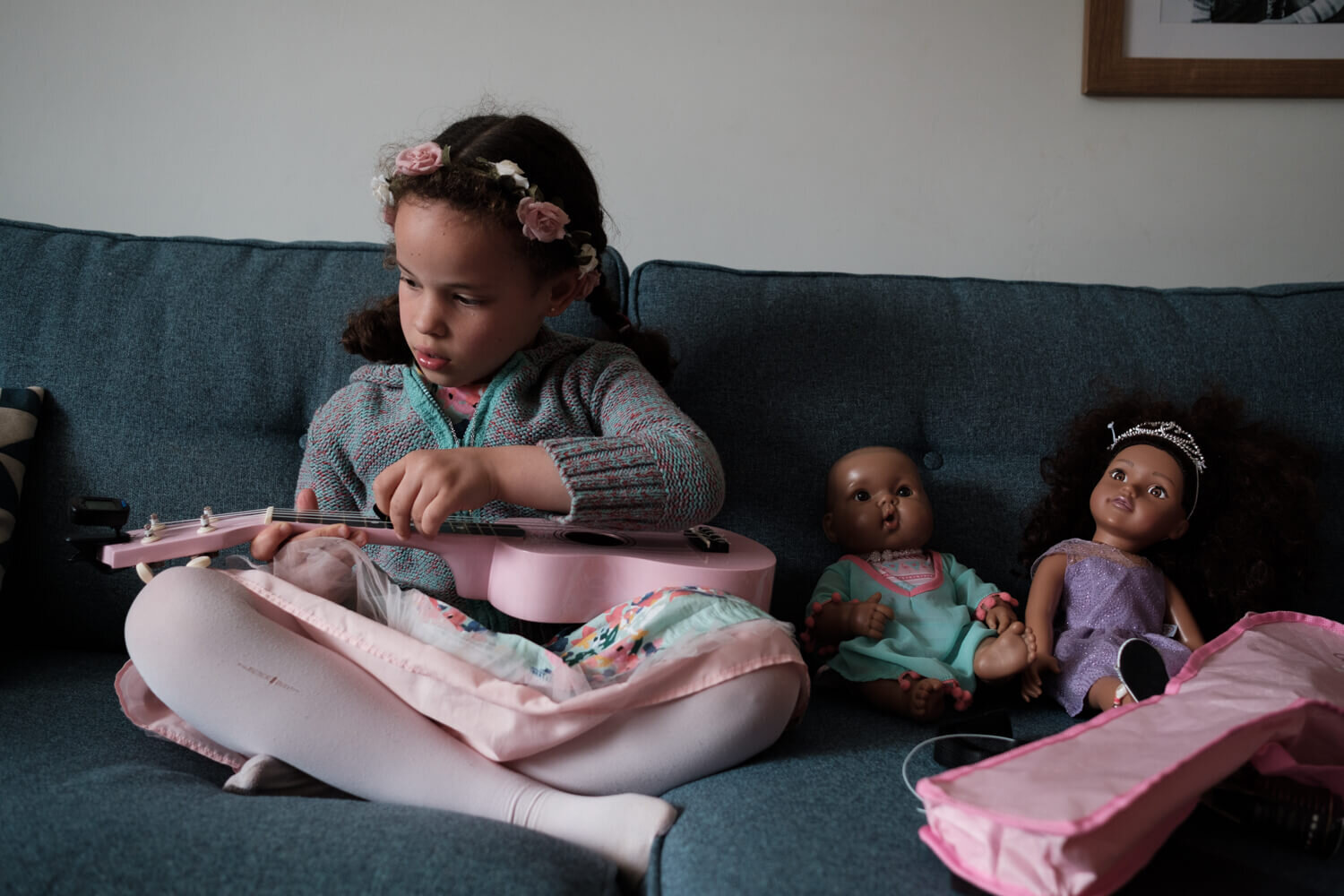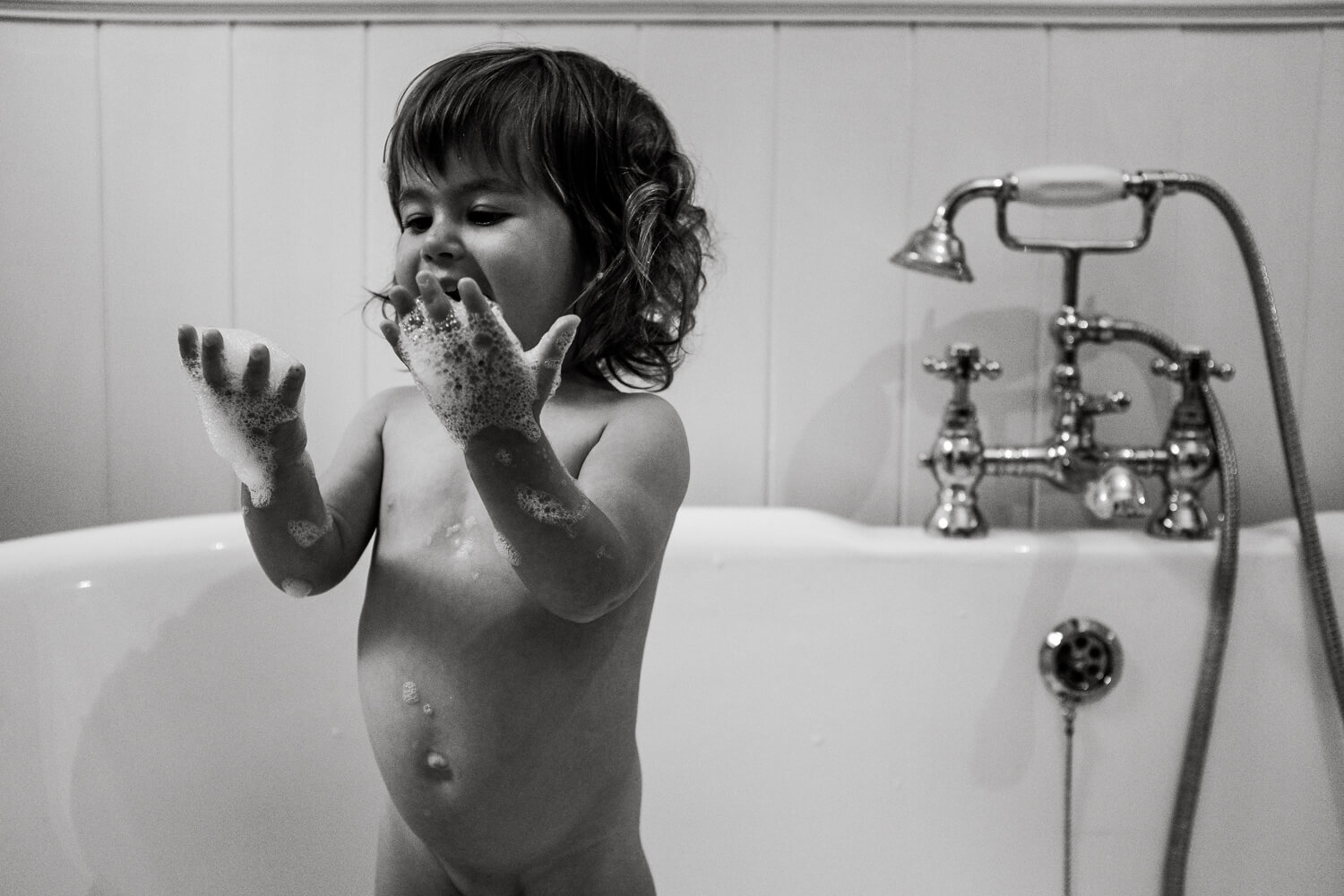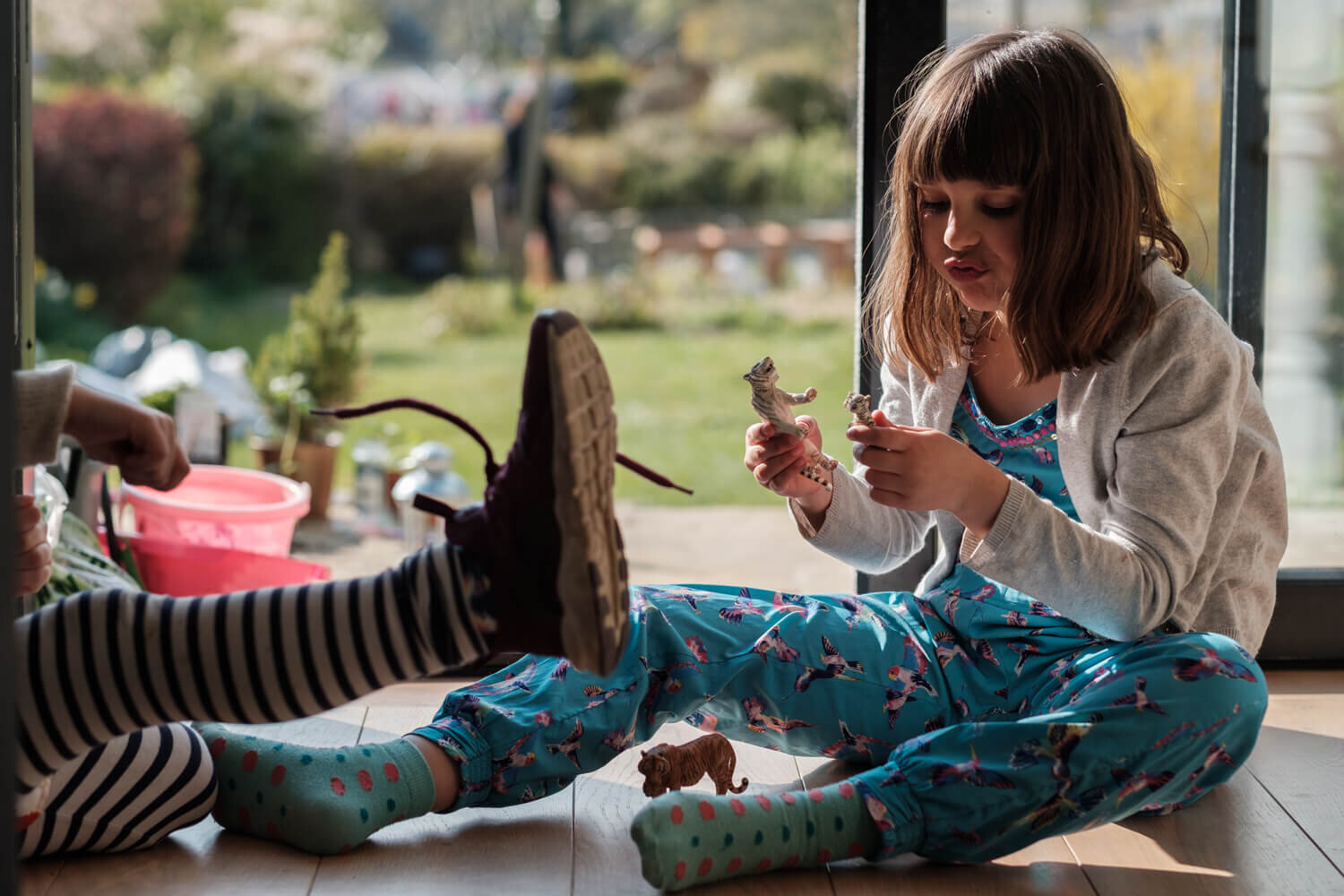Can photographs raise children's self-esteem?
As parents, most of us do our best to instil in our children a sense of self-worth and confidence. Since having our daughter (now almost 3 years old) I’ve become more interested in the effects of displaying photographs of our children around the home. When parents choose to place photographs on walls that show their children being uniquely themselves, that can only have a positive impact - isn’t that partly why we stick their artwork on the fridge from the earliest age?
Documentary photography has the potential to be even more impactful when displayed in the home, compared to posed photographs. I’m always looking for moments when children are just being themselves, often showing quirky habits, personality traits or facial expressions. While in posed photographs the adult taking the photograph is boss, the documentary approach is to be led by the subject, which I think is more empowering. In V’s room we have a photo of her looking amazed and delighted at a giant mound of bubbles she made in the bath. We love this photo because it crystalised something about her spirit at this stage in her life.
Studies also support the link between printed family photographs and self-esteem. An interesting study was conducted in 1975 with a group of nine- and ten-year-olds at a Tennessee school by Tulane University. During a five-week period, the children took Polaroid instant photos of themselves with provided cameras in a variety of assigned poses, compositions and expressing various emotions. The children worked with the printed images of themselves and created scrapbooks once a week over those five weeks. Testing of the students and teachers at the conclusion of study revealed a significant increase of 37 percent in the students’ average self-esteem behaviours. This Murfreesboro Study shows some evidence personal photography of children seen and enjoyed in a specific way can help boost a child’s self-esteem.
Professor Geoff Beattie, Head of School and Dean of Psychological Sciences at the University of Manchester: ‘For children in particular, looking at photographs is part of the socialising process; learning who you are and where you fit into the family. By displaying photographs of our children at different stages of their lives, we are making a very public statement that we are proud of them.’
I’m unashamedly biased about wanting my photographs to be enjoyed as physical prints rather than digital files tucked away on a computer. My hope is that more and more people will rediscover the benefits of printing their photographs and enjoying them everyday.




